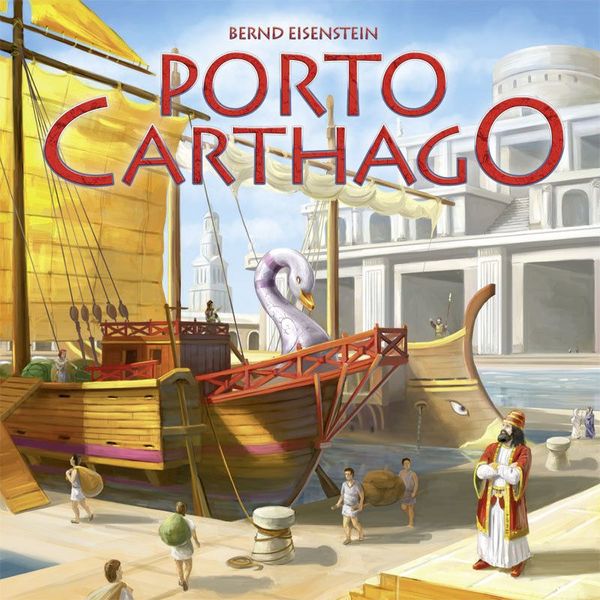Porto Carthago (2010) Board Game
Porto Carthago is a board game released in 2010, designed by Oliver Schlemmer and illustrated by Irongames. The game is set in ancient times and revolves around the theme of building and trading in the port city of Carthage.
Game Components of Porto Carthago
How To Setup Porto Carthago
To set up the game, players first place the game board in the middle of the playing area. Each player selects a set of servant tokens and places them on the board according to the starting rules. The goods tokens, ship tokens, and income tokens are distributed accordingly. Players also receive a starting amount of income. The setup ensures that all players have equal opportunities to begin their economic ventures.
Gameplay Mechanics and Game Objective
Player Experience
In Porto Carthago, players are immersed in a historical setting where they act as merchants in ancient Carthage. The game demands strategic thinking and resource management, as players must balance the need to earn immediate income with the long-term goal of building a robust shipping empire. The game’s pacing is well-balanced, allowing for both quick decisions and deeper strategic planning.
Pros
Cons
Personal Thoughts on Porto Carthago
Porto Carthago is ideal for fans of economic and strategic board games. It is particularly suited for players who enjoy games that require careful planning and resource management. The game’s historical setting adds a unique flavor that will appeal to those interested in ancient civilizations. However, it may not be the best choice for casual gamers or those looking for quick, light-hearted games.
We are supported by our audience. When you purchase through links on our site, we may earn an affiliate commission, at no extra cost for you. Learn more.

